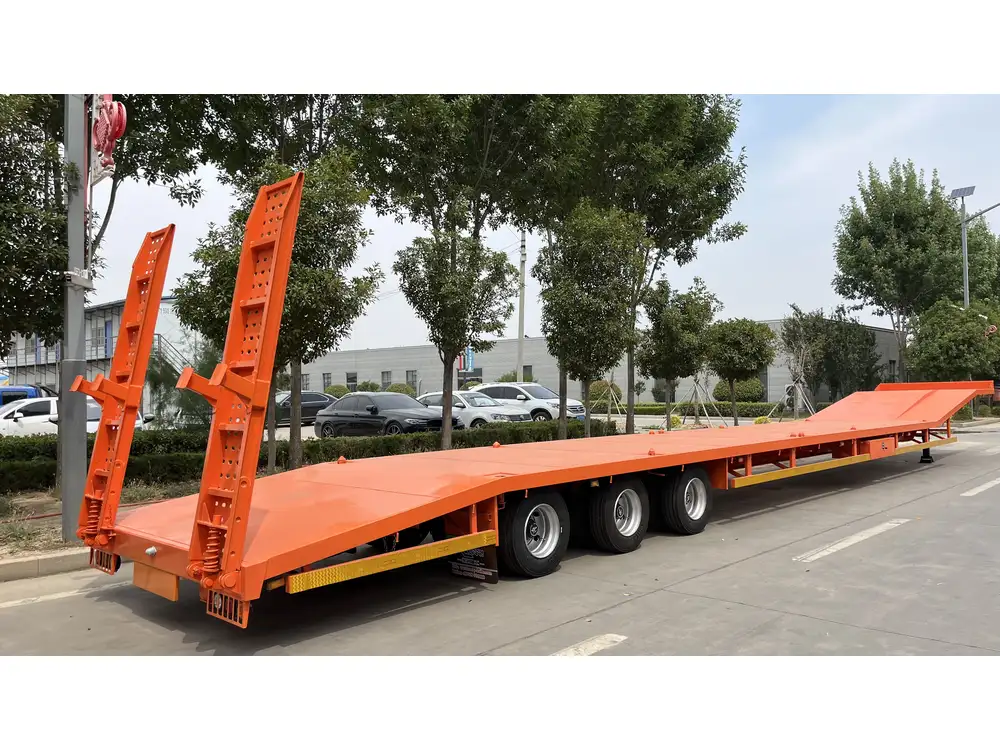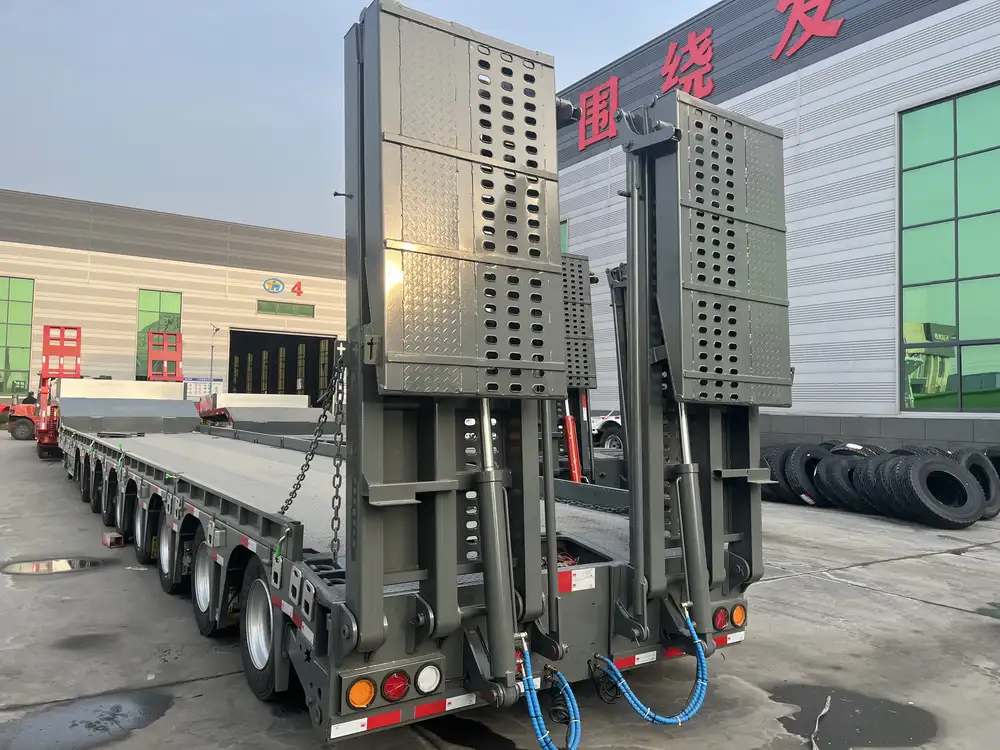Understanding Car Carrier Trailers
In an era where automotive transport demands efficiency, reliability, and innovation, the car carrier trailer stands as a pivotal asset in logistics. These specialized semi-trailers are designed for transporting multiple vehicles simultaneously, making them an essential tool for dealerships, rental agencies, and individual owners alike. Understanding the nuances of car carrier trailers can optimize your transport operations, streamline efforts, and ultimately enhance profitability.
Types of Car Carrier Trailers
The market for car carrier trailers is diversified, catering to a broad spectrum of needs and functionalities. Below is an extensive overview of the main types of car carrier trailers:

1. Open Car Carrier Trailers
| Feature | Description |
|---|---|
| Design | Typically features ramps and multiple levels. |
| Capacity | Can hold 4 to 10 vehicles depending on size. |
| Usage | Frequently used by dealerships and auctions. |
| Cost-Effectiveness | Generally more affordable than enclosed options. |
| Aerodynamics | Open design may allow increased wind resistance. |
| Weather Exposure | Vehicles are exposed to elements during transit. |
Open car carrier trailers are the most common type utilized for vehicle transport. Their design emphasizes efficient loading and unloading, allowing for swift operations. However, one must consider the exposure to weather elements, which may affect the cargo.
2. Enclosed Car Carrier Trailers
| Feature | Description |
|---|---|
| Design | Fully enclosed for maximum protection. |
| Capacity | Generally transports 2 to 6 vehicles. |
| Usage | Ideal for luxury, vintage, or high-value vehicles. |
| Cost-Effectiveness | Higher transportation costs due to complexity. |
| Aerodynamics | Improved due to streamlined design and less wind resistance. |
| Weather Exposure | Full protection from environmental elements. |
Enclosed car carrier trailers prioritize vehicle safety, offering protection against various external factors. They are essential for transporting high-value vehicles, where maintaining pristine condition is critical.
3. Multi-Level Car Carriers
| Feature | Description |
|---|---|
| Design | Multi-tier systems for maximizing load capacity. |
| Capacity | Can transport up to 10 vehicles. |
| Usage | Used primarily by large transportation companies. |
| Cost-Effectiveness | Economical for moving large volumes. |
| Aerodynamics | Can be less aerodynamic depending on design. |
| Weather Exposure | Open levels expose vehicles to the elements. |
Multi-level car carriers amplify capacity, allowing transporters to maximize each trip. While these trailers can accommodate larger shipments, they share similar exposure risks as open car carriages.

Selecting the Right Car Carrier Trailer
Choosing the appropriate car carrier trailer hinges on several critical factors. Understanding these will facilitate informed decisions leading to cost savings and operational efficiency.
Considerations for Selection
| Factor | Considerations |
|---|---|
| Type of Vehicles Transported | Assess the size, weight, and value of the vehicles intended for transport. |
| Volume of Transport Needs | Determine how many vehicles will be transported frequently. |
| Budget | Set a budget for purchase or lease, weighing upfront vs. long-term costs. |
| Logistics | Analyze the routes, load-unload facilities, and turnaround times. |
| Regulations | Ensure compliance with local and state transport regulations. |
Importance of Maintenance for Car Carrier Trailers
The longevity and safety of a car carrier trailer significantly depend on regular maintenance. Below is a comprehensive maintenance checklist to ensure the best performance of your trailer.

Maintenance Checklist
| Maintenance Task | Frequency | Importance |
|---|---|---|
| Tire Inspection | Weekly | Prevent blowouts and ensure optimal traction. |
| Brake System Checks | Monthly | Critical for safety and compliance regulations. |
| Chassis and Frame Inspection | Quarterly | Identify wear and tear to maintain structural integrity. |
| Lighting Check | Monthly | Ensure visibility and compliance with road standards. |
| Load Straps and Securing Mechanisms | After every use | Essential for preventing vehicle damage during transit. |
Totaling these maintenance activities not only protects the cargo during transport but also extends the lifespan of the trailer, reducing long-term costs.
Enhancing Service Through Technology
Incorporating technology within the transport logistics framework drives operational efficiency. From GPS tracking to automated systems, technology can significantly augment the functionality of car carrier trailers.
Key Technological Advancements
| Technology | Benefits |
|---|---|
| Tracking Systems | Real-time vehicle location, enhancing transparency. |
| Telematics | Provides data analytics for vehicle health and performance. |
| Safety Technologies | Advanced braking and stability control systems improve safety. |
| Automated Load Management | Microsoft and AI-driven systems help optimize load distribution. |
Harnessing these technological tools can substantially elevate service quality, leading to enhanced customer satisfaction and potentially higher profit margins.

Addressing Common User Concerns
When considering the purchase or lease of a car carrier trailer, potential users often have various concerns. Addressing these proactively fosters confidence and interest.
Frequently Asked Questions
What is the average cost of a car carrier trailer?
- Prices can range significantly based on size and type. Open trailers may start around $20,000, while enclosed models often exceed $50,000.
How do I ensure my cargo is secure during transport?
- Utilizing high-quality securing mechanisms, conducting post-loading checks, and maintaining proper weight distribution are essential for safeguarding the cargo.
What are the regulations surrounding car transportation?
- Local regulations may vary, so it is crucial to consult relevant guidelines governing documentation, load limits, transportation routes, and safety standards to ensure compliance.
Can car carrier trailers be customized?
- Yes, various manufacturers offer customization options, tailoring features such as ramping systems, tie-down points, and trailer widths to meet specific transportation needs.
What are the benefits of opting for enclosed carriers?
- Enclosed trailers provide exceptional protection against the elements, reduce the risk of theft, and are typically preferred for transporting luxury vehicles.
Conclusion: Maximizing Your Transportation Efficiency
Investing in a car carrier trailer is not merely a purchase; it’s a strategic decision capable of transforming your logistics operations. By choosing the right type of trailer, adhering to rigorous maintenance practices, integrating technological advancements, and addressing common concerns, you can maximize operational efficacy.
The transportation landscape is continually evolving, and with adaptation comes opportunity. Staying informed about trailers—particularly car carriers—along with associated trends, market conditions, and evolving consumer needs, empowers businesses to maintain a competitive edge.
Selecting the ideal trailer requires understanding your unique needs and how these vehicles can mitigate challenges in the automotive transport sector. Whether you are expanding a fleet or investing in a single trailer, informed decisions lead to enhanced service delivery and increased profitability.
As you embark on this journey, consider the broader implications of your choices and the integral role that quality car carrier trailers will play in shaping your operational future.



